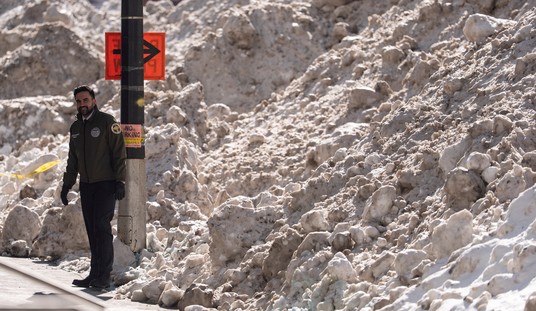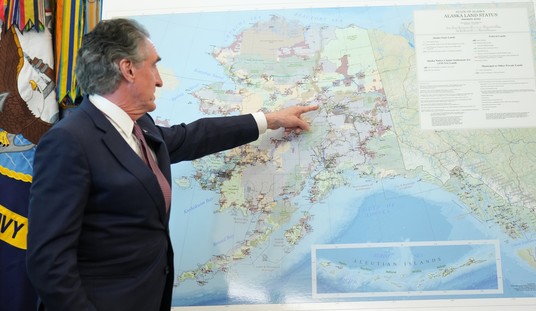If you want to blame me for a clickbaity headline, I blame the Washington Post which titled the story The guy who predicted Comey’s memos thinks Comey may be trying to take down Trump.
“The guy” in the Washington Post story is former Obama Justice Department director of public affairs, Matthew Miller. Miller, you will recall, got a lot of attention right after Comey was fired with this tweet:
One thing I learned at DOJ about Comey: he leaves a protective paper trail whenever he deems something inappropriate happened. Stay tuned. https://t.co/sENlYyhL5B
— Matthew Miller (@matthewamiller) May 12, 2017
Now to the article. The previous question was about the appropriateness of Trump’s alleged request that Comey not press the investigation of Flynn. This is the follow up:
Q: So that would definitely raise a red flag for Comey.
MILLER: Yeah. And Comey — he might have had two motives here. One is, when you’re put in this situation, you want to make a record, so if the other side ever tells their story, you can pretty clearly demonstrate with contemporaneous records that you acted appropriately.
I keep wondering — something in the back of my head keeps saying to me — maybe Comey was actually trying to build an obstruction-of-justice case against the president here. You know what I mean? Because Comey could handle this one of two ways: The president makes this request, and the first time Comey might say to him, ‘You know, Mr. President, it’s inappropriate for us to have this conversation, and I would appreciate if you would not make a request like this to me again.’ That’s a way to handle it that says very clearly to the president that this should never be repeated.
But if you’re trying to build an obstruction-of-justice case, you might want the president to keep talking, because everything he does is digging a deeper legal hole for himself.
And then there is this bit of insight:
Q: A lot of this could come down to how much Comey wants to fight this battle with the president. Is there anything in his past that leads you to believe he would willingly and proactively want that fight?
MILLER: Yes. Look, there’s one thing I agree with the president on: That Comey is a showboat. You just look at his actions in the [Hillary] Clinton case, where he made himself the central player when there was no reason for him to be the central player. That aside, his entire history shows that he likes to be at the center of attention. You look at the Ashcroft bedside incident where that unfolded in one of the most dramatic congressional hearings in history. And it was pretty clear at the time that that hearing had been pretty well planned by Comey and by Preet Bharara — to uncover real wrongdoing by the Bush administration — but also to present Comey in a very favorable light.
To fully appreciate this story, read Sean Davis’s profile of Comey based on former Attorney General Alberto Gonzales’s book “True Faith and Allegiance.”
Gonzales was taken aback by Comey’s appearance and testimony. It turns out that was by design. Comey kept secret his pre-hearing planning with Schumer and his staff to maximize the fallout of the bomb he planned to drop on Gonzales and the Bush administration. In a significant breach of protocol, Comey also refused to share with the White House or the Department of Justice that he had planned to testify about his work at DOJ, a move which made it impossible for the White House to consider whether it needed to assert executive privilege over portions of Comey’s planned testimony.
As fate would have it, the Schumer staffer who spearheaded the entire spectacle was none other than Preet Bharara, a former employee of Comey’s in the U.S. attorney’s office in New York. Bharara, like Comey, was fired by President Donald Trump earlier this year. And Bharara, like Comey, owes his most recent position of authority in the U.S. government to Schumer and President Barack Obama.
Read that last paragraph two or three times. Think hard about the events of this week. Try to recall where the Comey memo first appeared. You might see dots beginning to connect.
Back to Miller:
MILLER: Right. And honestly, I think that’s what he had in mind with his July press conference on the Clinton emails last year. I think he is a man of integrity, but he also thinks of himself very much as a man of integrity and likes the spotlight that highlights that. And he’s going to enjoy the spotlight of a congressional hearing when he inevitably testifies. …
We have no idea who made the decision to leak this, whether it was Comey himself or it was people at the FBI. And we don’t know what their complete strategic goals are. But if you were really looking to damage the president, you wouldn’t leak the most damaging memo first. So who knows what comes next?
And this about Comey’s ability to be cold-bloodedly calculating:
MILLER: There’s one involving Comey that I actually had in mind when I sent that tweet last week. In 2005, the Bush administration was authorizing — or reauthorizing — waterboarding and other torture tactics. And Comey had signed off on it as a deputy attorney general. But in addition to signing off on it, he had a meeting with Attorney General [Alberto R.] Gonzales and laid out why he thought it was a bad idea for the government to torture people and how it would make the government look bad and call into question the credibility of everyone involved. And not only did he have the meeting, but he memorialized it in a meeting with his chief of staff, where he said exactly what he had laid out to the attorney general.
We know this because in 2009, when the Office of Professional Responsibility at the DOJ was investigating this issue and the New York Times wrote a story about it, magically Comey’s email to his chief of staff appeared in that story — and made its way to OPR. I was at DOJ at the time, and what it told me was Comey had the presence of mind to write the email in the first place, print a copy of it when he left the department, sit on it for four years and be ready to give it to a reporter when someone questioned why he had signed off on torture [my italics]. … I remember watching it and thinking, “This is very instructive of how Comey operates inside a bureaucracy.”
Let’s concede here, that if the event Comey is alleged to have memorialized in the memo happened, that Trump has no one to blame but himself. Negotiating is one thing, trying to get the nation’s top cop to stop looking at someone is a very different kettle of fish. But, again based on Miller it is not unusual to be asked to do inappropriate things:
There were times when I was at Justice when I got phone calls from people that would make inappropriate requests of me, and I would usually tell them, “That’s an inappropriate request; I can’t do that.” And then I would send an email to my deputy after the conversation describing it, so if anyone ever asked about it, there was a record of exactly what happened and that I didn’t do anything wrong.
And, based on the statements of Richard Burr and Comey’s own testimony, the weight of the evidence right now indicates that is what Comey did.
Are there other, heavier shoes to drop in the way of Comey memos? Who knows but one thing the past year has taught us is to not rule anything out.













Join the conversation as a VIP Member